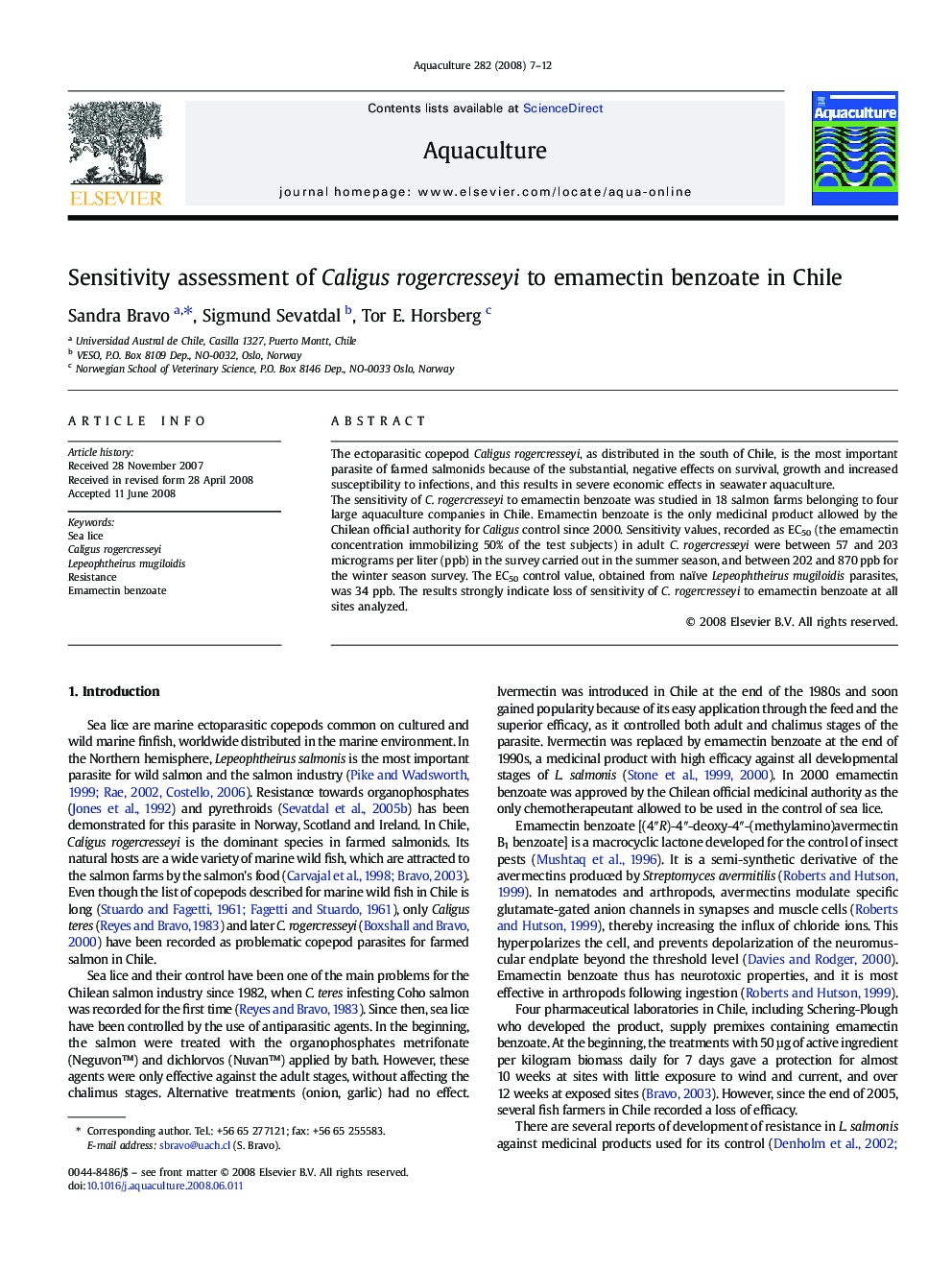| Article ID | Journal | Published Year | Pages | File Type |
|---|---|---|---|---|
| 2424557 | Aquaculture | 2008 | 6 Pages |
The ectoparasitic copepod Caligus rogercresseyi, as distributed in the south of Chile, is the most important parasite of farmed salmonids because of the substantial, negative effects on survival, growth and increased susceptibility to infections, and this results in severe economic effects in seawater aquaculture.The sensitivity of C. rogercresseyi to emamectin benzoate was studied in 18 salmon farms belonging to four large aquaculture companies in Chile. Emamectin benzoate is the only medicinal product allowed by the Chilean official authority for Caligus control since 2000. Sensitivity values, recorded as EC50 (the emamectin concentration immobilizing 50% of the test subjects) in adult C. rogercresseyi were between 57 and 203 micrograms per liter (ppb) in the survey carried out in the summer season, and between 202 and 870 ppb for the winter season survey. The EC50 control value, obtained from naïve Lepeophtheirus mugiloidis parasites, was 34 ppb. The results strongly indicate loss of sensitivity of C. rogercresseyi to emamectin benzoate at all sites analyzed.
